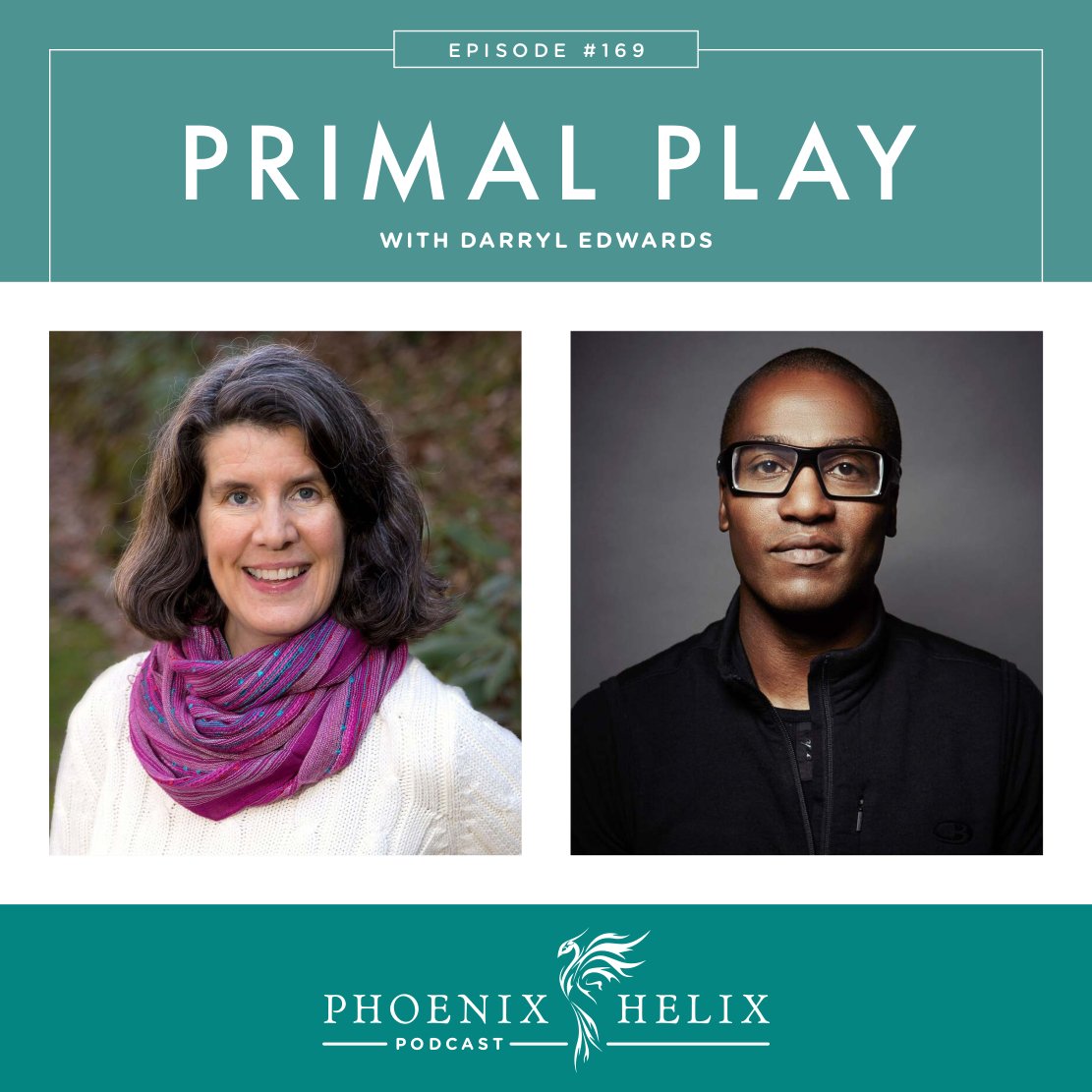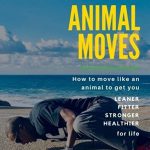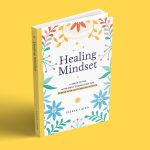
Rediscover the Joy of Movement
There are health benefits to play and health benefits to exercise, and there’s a special power in the combination. Children know this naturally, but adults rarely combine the two. How can we incorporate more playful movement into our lives? With autoimmune disease, a playful spirit can be hard to find sometimes, and when we’re in pain, movement may feel impossible. Yet play and movement are still available even in those moments, and may potentially reduce our pain and autoimmune symptoms. My guest is Darryl Edwards, founder of the Primal Play method.
Listen to the Show
- Subscribe to my podcast through your favorite podcast app: iTunes, Stitcher, Google, TuneIn, Spotify, Amazon, etc.
- You can also listen to the episode right here through the player below, and if you subscribe to my newsletter you’ll get notified of future episodes.
Podcast: Play in new window | Download
Show Notes
- Intro (0:00)
- Thank You to Our Podcast Sponsor – ShopAIP (2:19)
- Today, I’m highlighting their AIP reintroduction products. Many people start the Paleo Autoimmune Protocol on January 1st, and you might be in the middle of reintroductions right now. ShopAIP has you covered! In addition to hundreds of items for the elimination phase, they have new products labeled by reintroduction category as well. Some of my favorites include Epic Venison Bites (with a reintro of black pepper), Artisanal Chocolate (my favorite reintro), and nut butters. They also sell a wide variety of ghee, including goat ghee. If you need guidance on the reintro process, I have a series of articles on my blog as well as an ebook that guides you through every step including recipes.
- ShopAIP is an online store dedicated to the Paleo Autoimmune Protocol. You can find protein bars, sauces and condiments, AIP-friendly spices, cooking and baking ingredients, delicious snacks, non-toxic skincare, and more.
- If you’re a first-time customer, use the code PHOENIX for 10% off your order. Purchase here.
- Meet Darryl (3:57 & 10:57)
- Darryl Edwards is an expert on the health benefits of play and exercise. He’s the founder of the Primal Play method, and the author of the book, Animal Moves.
- Like most people, he was a playful child but became more serious as an adult. He worked long hours in a stressful career (technology and investment banking), and the only playfulness he indulged in was blowing off steam through drinking and partying – unhealthy forms of play.
- Eventually, his sedentary lifestyle caught up with him. His doctor wanted to prescribe medication to control his blood pressure, blood sugar, and cholesterol. Darryl decided to change his lifestyle instead. He joined a gym, and regular exercise was hugely beneficial to his mental and physical health. All of his bloodwork and vital signs normalized. He liked the end result, but hated the process. He had embraced a “no pain no gain” philosophy and exercise was arduous.
- That’s when he asked himself a key question: “When was the last time I enjoyed movement?” The answer was childhood. Darryl decided to find a way to move his body that was playful, challenging and joyful – where he would enjoy the process, not just the end result. The Primal Play method was born.
- How Play Changes in Adulthood (6:03)
- A lot of the ways adults tap into playfulness isn’t necessarily healthy: drinking, drugs, partying, gambling. They’re ways to “blow off steam” but they have addictive tendencies, harmful side effects, and don’t tap into the health benefits of play at all. Superficially they’re playful, but when you dig deeper, they’re not.
- Sports can be playful if you’re having a good time and everyone is welcome. However, when sports become professional, only certain people are “qualified” to play (and for those people it becomes work). Everyone else becomes a spectator – watching instead of participating.
- It’s not the activity that defines play. It’s the attitude.
- Challenging Play (15:30)
- Play isn’t necessarily easy and lighthearted all the time. Children love a challenge. Whether it’s climbing a tree, or playing hide and seek with friends – both activities are focused, quiet, a little scary, and the child is totally immersed in the experience.
- Children naturally embrace risk. Most adults are risk-averse. One quality of play is to to learn to embrace risk again and stretch your limits – not in a foolhardy way, but in a way that allows you to gain new skills and learn more about yourself. It’s the opposite of fear of failure.
- Embracing new experiences is also a key aspect of childhood play. Adults are drawn to what’s familiar and comfortable. The next time you’re doing an activity you’ve done hundreds of times before, ask yourself how you can make it different this time? How can you incorporate something new? Try to bring a spontaneous, adventurous spirit to your activities. That’s the spirit of play.
- Benefits of Active Play (19:56)
- The brain and body get the greatest boost from the blend of play and movement. We get all the benefits of exercise, all the benefits of play, plus additional benefits from the combination.
- Improved cardiovascular health.
- Reduction in all-cause mortality (longer life span).
- Mental health benefits: reduced anxiety and depression.
- Elevation of the feel-good hormones (serotonin, dopamine, and oxytocin).
- Social benefits if it’s a group activity.
- Reduction in stress and cortisol levels.
- Enhanced neurogenesis (the growth of new brain cells) and neuroplasticity (the brain’s ability to adapt).
- When it comes to preventing and reversing cognitive decline, learning to dance is one of the most powerful interventions. In fact, it’s more powerful than “brain games” like crossword puzzles and sudoku.
- Resources:
- Movement When You’re Feeling Pain (27:43)
- Research shows that exercise improves health outcomes for people with autoimmune disease.
- Darryl’s mission is to make active play available for everyone. When you have chronic illness, your abilities may change day to day based on your symptoms. Active play is about finding ways to move within your body’s potential. It’s not about pushing yourself to pain. It’s about challenging yourself slightly, and finding joy in the movements you can do.
- For example, with dancing – you can embody the spirit of dancing from a chair, gently moving to the beat of the music. This is what Eileen did when her rheumatoid arthritis symptoms were at their worst and most movement was painful. It was soothing and joyful to put on some favorite music and find a way to move that didn’t hurt.
- Similarly, Darryl suffered from chronic low back pain that would sometimes leave him bedridden. He discovered that exploring gentle ways to move in bed, alleviated some of that pain.
- Joyful movement releases endorphins which are natural painkillers. It also stimulates endocannabinoids, which are the body’s precursors to endorphins. Many people take CBD oil for pain. Endocannabinoids are the body’s natural CBD system.
- Exploring gentle movement also releases guarding – the muscle tension that occurs unconsciously when we try to protect ourselves from pain. This tension ends up increasing pain instead by adding a layer of tension and also sensitizing our pain receptors.
- What Is the Primal Play Method? (37:08)
- Primal – anchored in evolutionary biology. How are humans designed to move?
- Playful – eliminate boredom. What makes movement more enjoyable?
- Powerful – informed by modern science. What quality and quantity of daily movement improves health and wellbeing?
- Rediscover the joy of movement. Primal Play focuses on fun, functional and challenging movement that can be adapted for all.
- Animal Moves (38:47)
- These are a big part of the Primal Play method. They make exercise more playful and challenge us to broaden our range of movements.
- Human beings are animals, too, and we have the added benefit of imagination. Children naturally mimic animals: flapping their arms like a bird, crawling like a bear, climbing like a monkey, jumping like a kangaroo.
- These are foundational movements. They can increase range of motion, strength, flexibility, mobility, and independence. And they can be adapted based on our abilities.
- Resources:
- The next time you watch animal videos on YouTube, try to mimic the animal’s movements.
- Top 10 Benefits of Animal Moves Workouts.
- 30 Ways to Move More at Home.
- If you sign up for Darryl’s newsletter, you’ll get an Animal Moves sampler ebook.
- The Animal Moves Book: Buy in the US through Amazon. Buy in the UK through Darryl’s website. (Darryl also has Animal Moves card decks.)
- Adapting Animal Moves (42:35)
- You can choose different animals based on your ability each day, and/or adapt an animal’s movements.
- Jumping a centimeter off the floor is still jumping. Even from a chair, there are ways to embody a jumping motion while staying seated.
- Quadriplegics experience benefits to the brain and body, even when exercise is passive.
- Crawling is especially beneficial to the body and brain, because it enhances communication between the left and right brain hemispheres. Here’s an exercise that’s done standing (and can also be done sitting or lying down) that accesses this cross-body benefit. You can slow the pace and adapt the movements to your body’s ability, but challenge yourself, and see how your coordination improves over time.
- Remember this: Confusion is where the magic happens. When you try a new movement and you feel uncoordinated, that challenges your brain to create new neural pathways. When something gets easy, it’s time to try a new challenge. Variety is where the magic happens, too.
- Video: Primal Play Is Inclusive.
- Outro (54:16)
- Darryl’s website is called Primal Play. It’s full of research, articles, tutorials, videos, as well links to his Animal Moves book and card decks. He also coaches people 1:1. And be sure to check out his Ted Talk.
- Eileen (your podcast host) is the author of multiple books, written to help people thrive with autoimmune disease. Learn more on the Books Page.
- If you like this podcast, follow or subscribe through your favorite podcast app. You can also subscribe to Eileen’s biweekly newsletter.
- Check out the entire archive of podcast episodes.
You May Also Be Interested In
Spreading the Word
If you like the podcast, please leave a positive review in iTunes. It would mean the world to me, and also helps others find the podcast. Here are some quick instructions using your iPhone:
- If you are already subscribed to my podcast: (1) Click the purple podcast icon. (2) At the bottom of the screen, click Library. (3) At the top of the screen, click Shows. (4) Click the Phoenix Helix podcast image. (5) Scroll down the page, and you’ll see Ratings and Reviews. Scroll down a little bit more and click on Write a Review. This will bring up the review screen. Tap 5 stars (if you love the podcast), and then click in the title box, and it will bring up the keyboard. Enter a title and short review. (6) Click Send in the upper right corner. (7) Thank you! Positive reviews give the podcast a higher search ranking in iTunes, helping people find it and letting them know it’s a quality podcast and worth their time to listen.
- If you haven’t subscribed to my podcast: (1) Click the purple podcast icon. (2) In the lower right corner, click the magnifying class. (3) Type Phoenix Helix in the search box. (4) Click the podcast cover in the Show list. (5) If you’d like to subscribe, click the + sign at the top of the screen. (6) To write a review, scroll down the page, and you’ll see Ratings and Reviews. Scroll down a little bit more and click on Write a Review. This will bring up the review screen. Tap 5 stars (if you love the podcast), and then click in the title box, and it will bring up the keyboard. Enter a title and short review. (7) Click Send in the upper right corner. (8) Thank you! Positive reviews give the podcast a higher search ranking in iTunes, helping people find it and letting them know it’s a quality podcast and worth their time to listen.








The description of play in children and our imaginations…It occurred to me that reading might qualify as play, too.It would be great to have a booklist of affirmative, joyful, action-packed readings.
Hi Amy. I love reading and think it’s a wonderful part of a joyful life! I don’t think it’s a substitute for movement, but they are both wonderful practices. I hear you on wanting a list of joyful books. So many books are so bleak! I love reading fantasy and sci-fi for that reason.